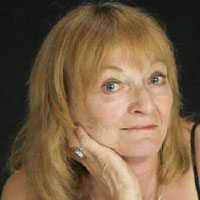
Christine Rotgers doesn’t consider herself a trailblazer. But she is.
Her mother was a homemaker and her father a sawyer whose education peaked before high school. And three of her grandparents were illiterate.
Christine, however, attended college and earned a bachelor’s degree in bacteriology. After college, she followed one of her colleagues to the Los Angeles area.
“I was on the East Coast and he called one dreary winter day,” she recounts. “He had taken a job at a new start-up company and needed an assistant. How could I say ‘no’?”
That start-up was Amgen Inc. It would later become one of the largest biotechnology companies in the world.
While at Amgen, Christine performed early research on interferon produced by the bacterium E. coli.
She was also part of the team that developed Neupogen — a drug that helps the body produce white blood cells. It’s often used in cancer treatment along with chemotherapy.
“We beat all kinds of records getting the drug to the market quickly,” she said. “I remember receiving letters from parents of children with immune deficiency syndrome thanking us for helping their children have a normal life.”
Those letters had a profound impact on Christine and helped fuel her desire to do more.
“I had heard of City of Hope even when I lived back East,” Christine says. “It was a famous place. Once I moved to California, I learned that it was known for cancer research.
“I have had a satisfying career and I am okay financially, even in these difficult times, so when I thought about how I wanted to give back, it was natural for me to think of City of Hope.”
Cancer took the lives of several members of her family “so I wanted to do something to help find a cure and to help people with cancer,” she explains. “Maybe it will affect me one day, so there is even more reason to use my resources to advance research and patient care.”
On the recommendation of advisors, Christine set up what is called a charitable remainder trust or CRT. She receives an income from the trust for the rest of her life and when she dies, the proceeds go to City of Hope.
Christine funded her CRT with stock that had appreciated. The Internal Revenue Code allows her to avoid income and capital gains taxes through the use of the CRT.
Christine likes the fact that she can control where the money goes. She made a gift to the department of biochemistry and microbiology at Rutgers as a scholarship for graduate students who wanted to pursue their post-graduate education.
She also designated funds to City of Hope to support transportation assistance. She had a friend who didn’t drive and found it difficult to get to treatment. “You can’t be helped by City of Hope if you can’t get there!” she said.
Christine recently toured City of Hope’s Duarte, California campus with a friend. “I learned so much — it was really wonderful,” she says. And now her friend is spreading the word about City of Hope.
“I want to do all I can, financially and otherwise, to help City of Hope,” Christine says.

